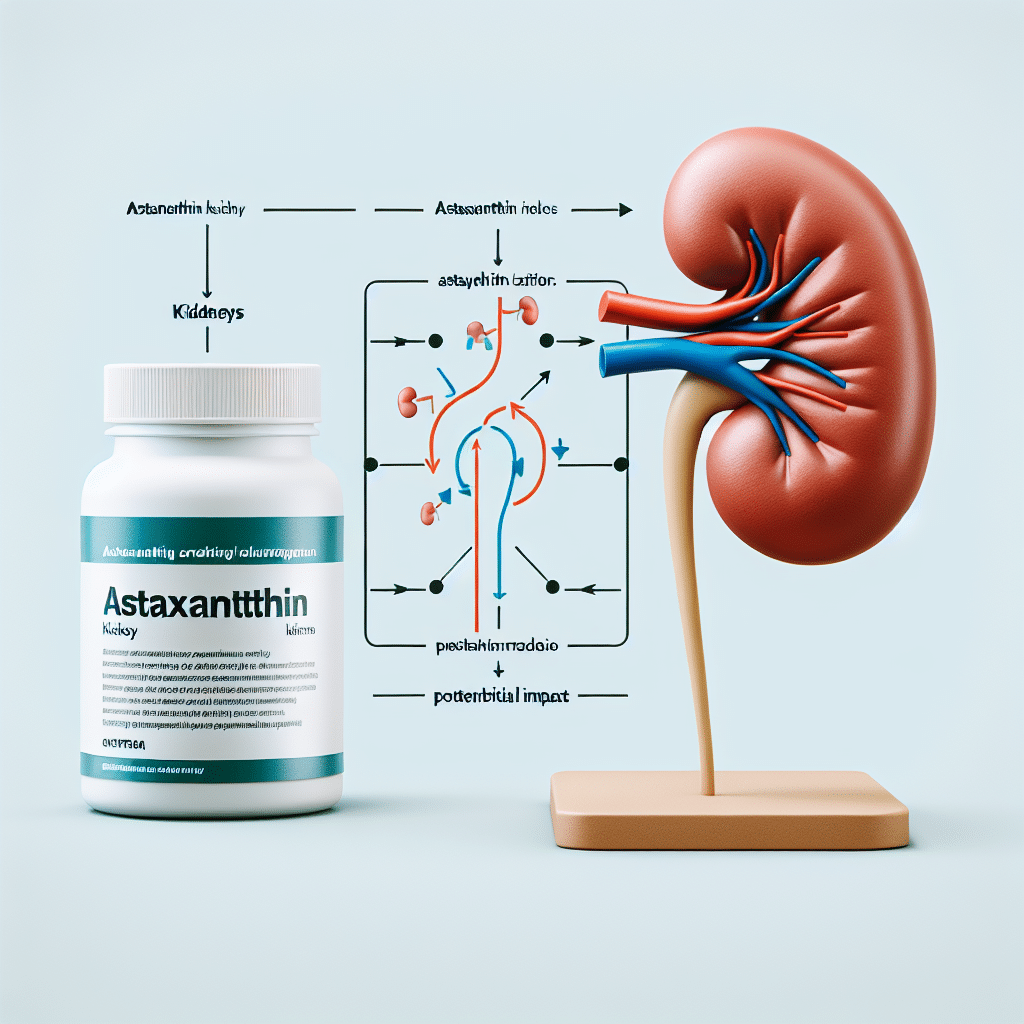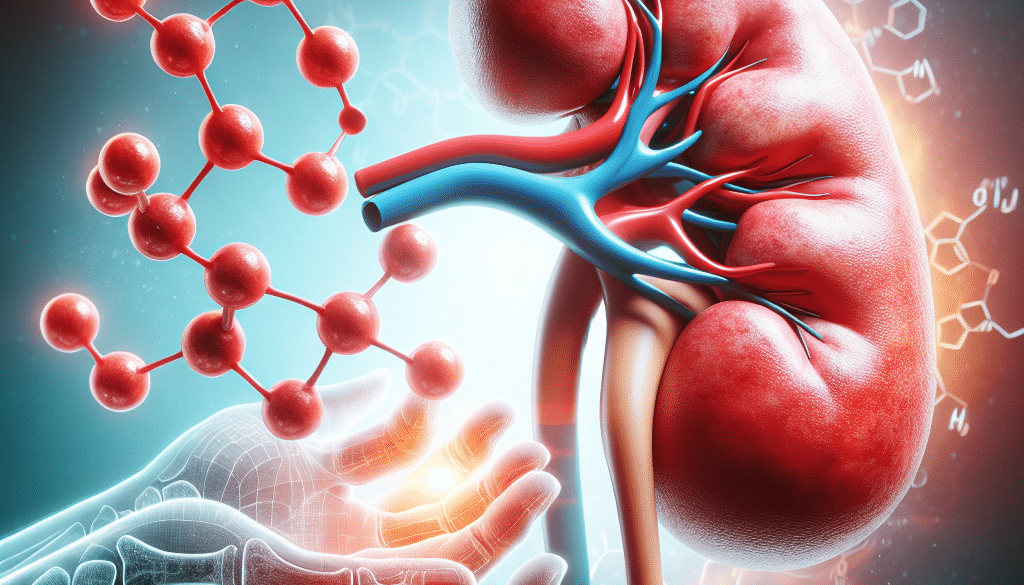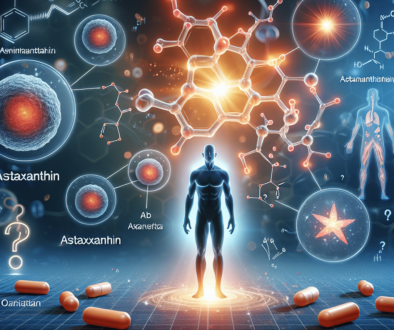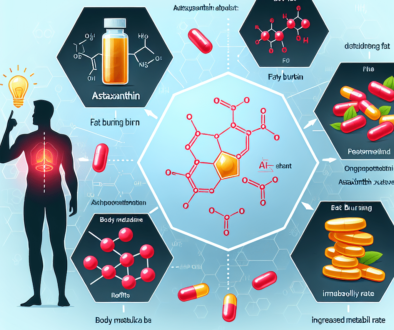Is Astaxanthin Hard On Kidneys?
-
Table of Contents
- Astaxanthin and Kidney Health: An In-Depth Analysis
- Understanding Astaxanthin
- The Kidneys: A Vital Organ
- Is Astaxanthin Hard on Kidneys?
- Research on Astaxanthin and Kidney Health
- Considerations for Kidney Health
- Case Studies and Anecdotal Evidence
- Recommended Dosage and Safety
- Conclusion: Balancing Benefits and Risks
- Explore ETprotein’s Protein Products
Astaxanthin and Kidney Health: An In-Depth Analysis

Astaxanthin, a naturally occurring carotenoid found in certain marine plants and animals, has gained popularity as a potent antioxidant supplement. Known for its potential benefits ranging from improved skin health to enhanced athletic performance, astaxanthin is often consumed for its health-promoting properties. However, with the rise in its usage, concerns about its impact on kidney health have emerged. This article delves into the current research to address the question: Is astaxanthin hard on kidneys?
Understanding Astaxanthin
Astaxanthin is a keto-carotenoid that contributes to the vibrant red and pink colors of salmon, shrimp, and krill, among other sea life. It is also present in the microalgae Haematococcus pluvialis, which is a primary source for commercially produced astaxanthin supplements. As an antioxidant, astaxanthin is known to neutralize free radicals in the body, potentially reducing oxidative stress and inflammation.
The Kidneys: A Vital Organ
The kidneys are essential organs responsible for filtering waste products, excess water, and other impurities from the blood. These waste products are then excreted from the body in the form of urine. The kidneys also play a crucial role in regulating blood pressure, electrolyte balance, and red blood cell production. Given their importance, it’s vital to understand how supplements like astaxanthin may affect their function.
Is Astaxanthin Hard on Kidneys?
Concerns about the potential nephrotoxic effects of astaxanthin stem from its powerful antioxidant properties and the body’s need to process and eliminate it. To address these concerns, we must look at the available scientific evidence.
Research on Astaxanthin and Kidney Health
Studies on astaxanthin have primarily focused on its benefits, with few directly examining its impact on kidney health. However, the research that does exist provides some insights:
- A study published in “Marine Drugs” found that astaxanthin showed protective effects against oxidative stress in kidney cells.
- Another study in the “Journal of Agricultural and Food Chemistry” suggested that astaxanthin might help mitigate kidney damage caused by toxins like cisplatin.
- Research in “Nutrients” indicated that astaxanthin could have a protective role against diabetic nephropathy, a type of kidney damage resulting from diabetes.
While these studies suggest potential kidney-protective effects of astaxanthin, they do not conclusively determine its safety profile regarding kidney function in humans.
Considerations for Kidney Health
For individuals with healthy kidneys, moderate consumption of astaxanthin as part of a balanced diet or as a supplement is unlikely to pose significant risks. However, those with pre-existing kidney conditions or those taking medications that impact kidney function should exercise caution. Consulting with a healthcare provider before starting any new supplement regimen is always recommended.
Case Studies and Anecdotal Evidence
While large-scale clinical trials are lacking, some case studies and anecdotal reports have raised questions about astaxanthin’s safety for kidney health. In these instances, individuals with kidney disease or those taking high doses of astaxanthin have reported adverse effects. However, these reports are not sufficient to draw definitive conclusions, and more research is needed.
Recommended Dosage and Safety
The recommended dosage of astaxanthin varies depending on the intended use, but most studies have used doses ranging from 4 to 12 mg per day. The safety of astaxanthin has been affirmed by several regulatory bodies, including the United States Food and Drug Administration (FDA), which has granted it Generally Recognized as Safe (GRAS) status for specific uses.
Conclusion: Balancing Benefits and Risks
In conclusion, the current body of research does not provide strong evidence that astaxanthin is hard on kidneys for the general population. Its antioxidant properties may even offer protective benefits for kidney health. However, individuals with kidney disease or those taking medications that affect kidney function should consult with a healthcare provider before using astaxanthin supplements. As with any supplement, moderation and adherence to recommended dosages are key to minimizing potential risks.
Explore ETprotein’s Protein Products
For those interested in enhancing their health and wellness regimen, ETprotein offers a range of high-quality protein products. Their selection includes organic rice protein, pea protein, and various seed proteins, all characterized by a neutral taste and non-GMO, allergen-free attributes. ETprotein’s L-(+)-Ergothioneine (EGT) products are also available in various grades, suitable for nutraceutical, pharmaceutical, and cosmeceutical applications. To explore their offerings and learn how they can support your dietary and health goals, contact ETprotein today.
About ETprotein:
ETprotein, a reputable protein and L-(+)-Ergothioneine (EGT) Chinese factory manufacturer and supplier, is renowned for producing, stocking, exporting, and delivering the highest quality organic bulk vegan proteins and L-(+)-Ergothioneine. They include Organic rice protein, clear rice protein, pea protein, clear pea protein, watermelon seed protein, pumpkin seed protein, sunflower seed protein, mung bean protein, peanut protein, and L-(+)-Ergothioneine EGT Pharmaceutical grade, L-(+)-Ergothioneine EGT food grade, L-(+)-Ergothioneine EGT cosmetic grade, L-(+)-Ergothioneine EGT reference grade and L-(+)-Ergothioneine EGT standard. Their offerings, characterized by a neutral taste, non-GMO, allergen-free attributes, with L-(+)-Ergothioneine purity over 98%, 99%, cater to a diverse range of industries. They serve nutraceutical, pharmaceutical, cosmeceutical, veterinary, as well as food and beverage finished product distributors, traders, and manufacturers across Europe, USA, Canada, Australia, Thailand, Japan, Korea, Brazil, and Chile, among others.
ETprotein specialization includes exporting and delivering tailor-made protein powder and finished nutritional supplements. Their extensive product range covers sectors like Food and Beverage, Sports Nutrition, Weight Management, Dietary Supplements, Health and Wellness Products, and Infant Formula, ensuring comprehensive solutions to meet all your protein needs.
As a trusted company by leading global food and beverage brands and Fortune 500 companies, ETprotein reinforces China’s reputation in the global arena. For more information or to sample their products, please contact them and email sales(at)ETprotein.com today.











